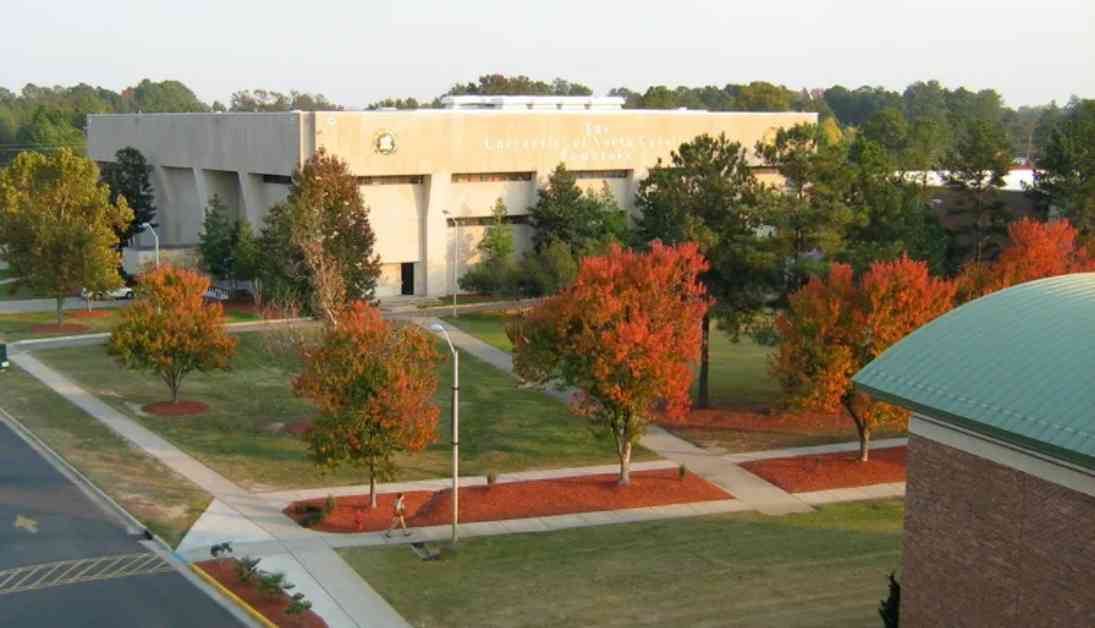Title: Project Kitty Hawk’s Impact on Student Return Rates in the UNC System
Miyaka Mackie’s journey back to college after nearly three decades is just one example of the reenrollment efforts being made within the University of North Carolina System. Mackie, a 46-year-old minister and full-time administrative assistant, reenrolled at the University of North Carolina at Pembroke to complete her bachelor’s degree in sociology. Her determination to finish her degree despite facing health issues showcases the impact of initiatives like Project Kitty Hawk, a nonprofit ed-tech startup aimed at reenrolling former students who left college without completing their credentials.
Reenrollment Initiatives in North Carolina
In response to the growing need for more workers with college degrees, the North Carolina General Assembly allocated $97 million to launch Project Kitty Hawk in 2021. Directed by Andrew Kelly, a former executive vice president for the UNC System, the initiative focuses on reenrolling students from underserved counties in North Carolina who had previously started their college education but did not finish. As of late August, Project Kitty Hawk had successfully reenrolled almost 2,800 students, including Miyaka Mackie, who are now on their way to completing their degrees.
The Need for Reenrolled Students
The reenrollment of former students like Mackie is part of a larger trend across the United States. In 2022, approximately 37 million working-age adults had some college credit but no credential, highlighting the untapped potential of this population. Projects similar to Project Kitty Hawk, such as California Reconnect, are also underway in other states to reenroll students from public colleges and universities. With the impending decline in high school graduates due to the demographic cliff expected in 2025, colleges and universities are increasingly focusing on reenrolling adult students to meet the demand for skilled workers with college degrees.
Financial Impact and Educational Opportunities
Reenrolled students like Mackie not only bring in tuition revenue for the UNC System but also contribute to the workforce by obtaining their degrees. The financial investment in reenrollment initiatives like Project Kitty Hawk has the potential to generate significant returns for both students and the state. With the addition of online courses and tailored support services, reenrolled students have the opportunity to balance their education with work, family, and other responsibilities, making it more feasible for them to complete their degrees.
Supporting Reenrolled Students
The UNC System’s efforts to serve adult students better include providing resources and services specifically designed for reenrolled students. By offering online courses, flexible scheduling, and additional academic advising, universities like UNC Pembroke and UNC Charlotte are creating a supportive environment for students returning to complete their degrees. The Adult Student Ambassador Program at UNC Charlotte, for example, pairs returning undergraduates with mentors to help them navigate the challenges of being back in school and ensure their success until graduation.
Challenges and Solutions for Reenrolled Students
One of the main challenges for reenrolled students is understanding the institutional system and overcoming barriers that prevented them from completing their degrees initially. ReUp Education, a partner of Project Kitty Hawk, works closely with former students to identify their motivations for reenrolling and address any obstacles they may face, such as transferring credits, improving their GPA, or resolving financial holds. By providing personalized support and guidance, reenrolled students are more likely to stay on track and complete their degrees successfully.
Looking Ahead: The Future of Reenrollment Efforts
As universities continue to prioritize reenrolling students who left college without finishing their credentials, initiatives like Project Kitty Hawk serve as a model for supporting adult learners in achieving their educational goals. By investing in resources, technology, and tailored support services, colleges and universities can empower reenrolled students like Miyaka Mackie to overcome obstacles, fulfill their potential, and contribute to a skilled workforce. The success of reenrollment efforts in the UNC System demonstrates the transformative impact of providing opportunities for students to return to college and complete their degrees, ultimately benefiting individuals, communities, and the economy as a whole.

